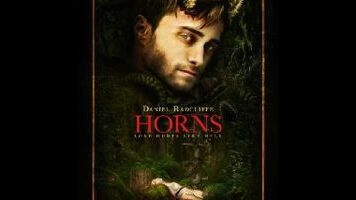They do, however, give him some unnerving powers. As Ig makes his way around town, trying to investigate Merrin’s death, people start asking him for permission to do bad things. It’s a witty conception of a devil figure who doesn’t make anyone do anything, instead acting as a kind of poisonous truth serum for the worst version of their souls. The movie belabors this point, though, by having Ig take far too long to get in on the game. He responds with confusion long after he should start to understand his new effect on the townsfolk. Ultimately, this particular power feels almost tangential to the rest of the story. That’s how a lot of Horns works: stretching plenty of good ideas thin over the course of its protracted two hours. The final section in particular slows down enough to include confrontations over events that have already been confronted earlier in the movie.
Ig’s horns and accompanying powers do effectively raise questions about his potential involvement in his Merrin’s death; by offering glimpses of their childhood-sweetheart relationship via flashbacks, Horns sets itself up as both a murder mystery and relationship autopsy. A horror movie sharing those frameworks sounds, on paper, like a worthy challenge for the gruesome sensibility of director Alexandre Aja, who pushed High Tension and remakes of both The Hills Have Eyes and Piranha to gory, visually striking extremes. Horns does represent a shift: Aja’s work here, adapting a novel rather than a cult movie of yesteryear, tends toward the subdued, with a haunted fairy-tale sheen and only a few brief moments of deranged gore effects. Most of the time, his amped-up style is put to use making sure the greens of the forest look really green and Temple’s pumpkin-colored hair really pops.
The change of pace might be more welcome if his actors, especially the central couple, had more coherent characters to play. Temple, who seems ideal for a gonzo genre movie, plays against wacked-out type as a girl next door, and only appears in a few flashbacks (hiring such a game actress to do so little is the wrong kind of perverse). That leaves Radcliffe, sporting an American accent that vaguely resembles Aaron Paul in Jesse Pinkman mode, to carry the movie. Here, as in several of his adult roles so far, Radcliffe sounds aggrieved, put-upon, and a little surly—not unlike Harry Potter in Order Of The Phoenix. Despite the screen presence he’s clearly learned from his signature franchise, he often pushes against his own charm, and fails to enliven Ig either as hero or potential devil. That’s not entirely Radcliffe’s fault, though; the movie manages to dampen the kick of seeing the former speaker of Parseltongue consorting with snakes again—another ill-defined power for Ig to exercise only in spurts.
Horns fumbles with its own powers, too. If its moments of Aja-ian archness blended better with the macabre sincerity that presumably comes from the source material, it might have provided a real autumnal chill. Instead, it’s more ambitious and complex than the horror movies that dutifully clock in to haunt multiplexes around Halloween—without actually being better.


 Keep scrolling for more great stories from A.V. Club.
Keep scrolling for more great stories from A.V. Club.